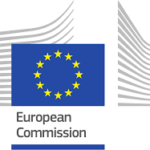According to the most recent annual survey on the use of ICT in households and by individuals, online shopping continues to grow in the EU.
In 2022, 91% of EU citizens aged 16 to 74 had used the internet, with 75% purchasing or ordering goods or services for personal use. The proportion of e-shoppers increased by 20 percentage points from 55% i 2012 to 75% in 2022.
In 2022, the Netherlands (92%), Denmark (90%), and Ireland (89%) had the highest proportions of internet users who bought or ordered goods or services over the internet. In Bulgaria, however, fewer than half (49%) had shopped online.
Between 2012 and 2022, the growth was particularly significant in Estonia (+47 pp), Hungary (+43 pp), Czechia and Romania (+41 pp).

Digital Markets Act: rules for digital gatekeepers to ensure open markets enter into force |
Clothes, shoes and accessories: most common online purchase
In 2022, the most common online purchases of goods were clothes (including sports clothing), shoes or accessories (ordered by 42% of internet users). Following wearables, the top 5 most common online purchases of physical goods were completed by deliveries from restaurants, fast-food chains and catering services (19%), cosmetics, beauty or wellness products (17%), furniture, home accessories or gardening products (16%), and printed books, magazines or newspapers and sports goods (excluding sports clothing) (both 14%).
Purchase of physical goods above the demand for services
The collaborative economy opened up a new way of exchanging goods and services through digital technologies.
In 2022, among internet users in the EU, 21% used collaborative economy platforms to order or buy physical goods from other individuals, while 6% rented accommodation, 1% used a transport service and below 1% ordered household services via such platforms.
Individuals aged 25-34 years and 35-44 years had a higher-than-average propensity for buying goods from other private sellers in 2022 with a share of 29% of internet users each.
The importance of online platforms to book, for instance, rented accommodation was recently also observed via the experimental statistics on this topic, showing booking levels in 2022 that exceeded the pre-pandemic years, whereas tourism in more traditional types of accommodation was still lagging a bit behind.







Leave a Reply